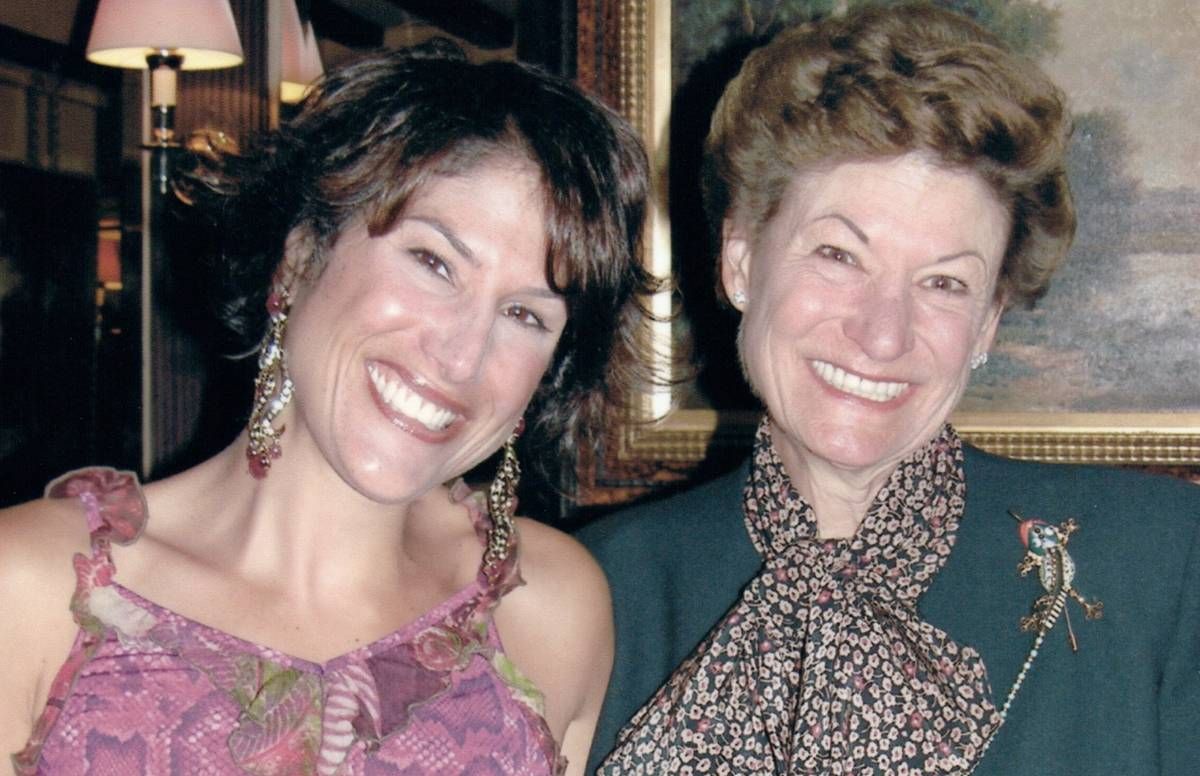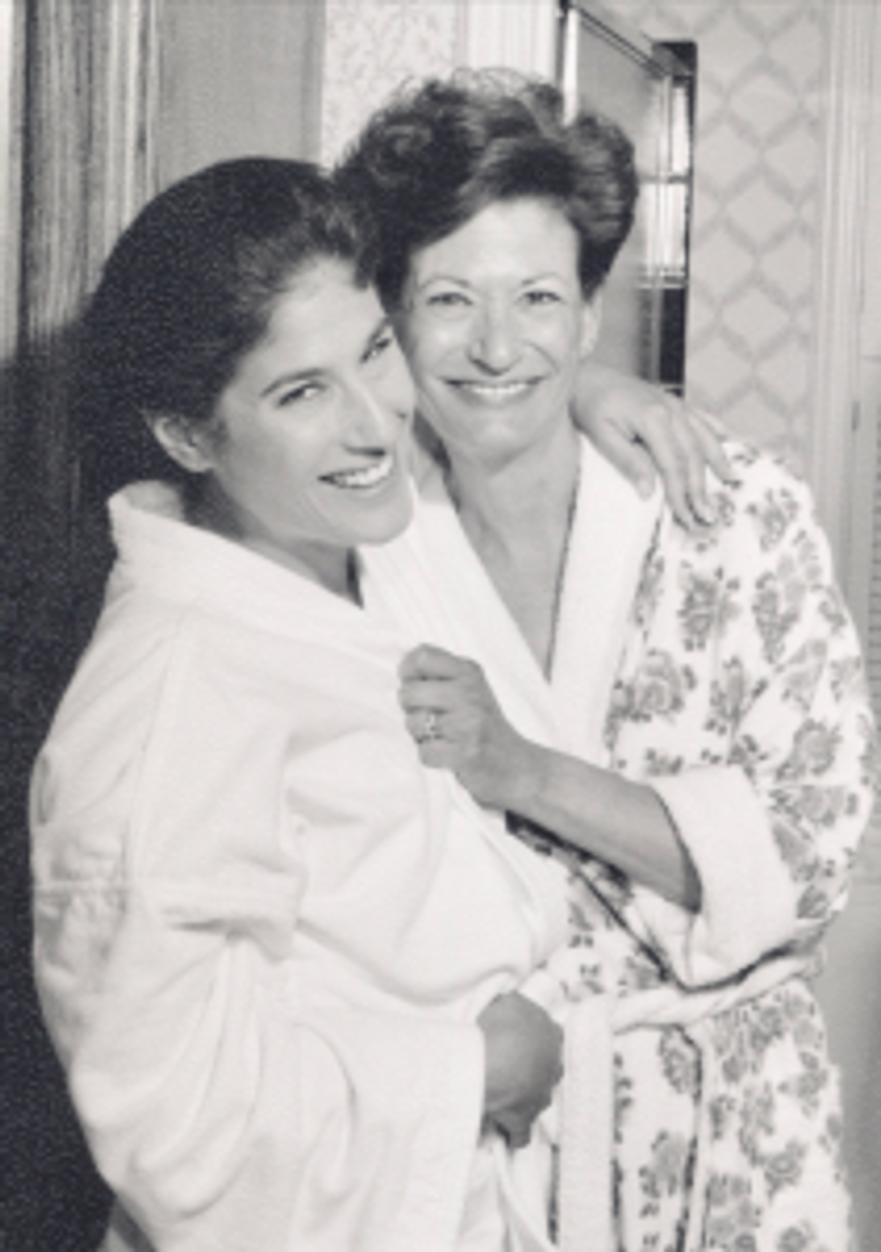Death in the Time of the Coronavirus
What it means to lose and mourn a loved one during the pandemic
Entering her apartment, I heard the scariest sound of all: silence. A burly EMT broke it with “I’m sorry.”

His slight partner gave the details. Mom was where they found her. There was no blood to suggest a hard fall. The other EMT surmised she had a heart attack between four to eight hours earlier, judging from the condition of the body.
Their voices and eyes were gentle, but it’s difficult to convey sympathy masked, gloved and socially distanced. Six feet might as well have been six light years. Death in the Time of Corona.
Under that white sheet, weighing 72 pounds, my mother was like a spill that I throw paper towel over to stop the spread. Three years ago, when her age matched that weight and she lived in a Westchester suburb of New York, she fell down the stairs, broke her neck, had spinal fusion surgery and rallied. COPD (chronic obstructive pulmonary disease) remained a big obstacle, and a recurrence of lung cancer a bigger one, but the lesions were responding to immunotherapy.
She kept beating the odds. After rebounding from burying her parents one after the other at 26, two cheating spouses, a son who severed ties, plus a spate of other adversities, and despite having a terminal disease, I thought she was invincible. Then she caught the flu in October, suffered congestive heart failure in February and that Tuesday morning in March, she was dead on my arrival.
I was as stunned as if the day before we’d enjoyed a leisurely lunch followed by a long stroll. Given that my mother ate little and exercised less, we rarely lunched or strolled, but I visited her thrice weekly. A couple of weeks earlier, when COVID-19 was still making its way from a middle-of-the-newspaper blurb to the headline, I stopped going. My mother, a poster child for underlying issues, would not be able to survive the virus.
Our Complicated Relationship
Our relationship resembled that of an only child with a single parent; I in the mother role. This started in high school. Devastated by my father’s adultery (and subsequent divorce), alone for the first time in her life, she needed hand holding. I missed 19 days of 12th grade to do it. The scenario repeated itself 30 years later, when my stepfather left her for a not-much-younger woman. Prioritizing need over love, she never would have left either of them.
Death had separated me from my mother, and now the law was robbing me of my connection to her.
By default, I assumed responsibility for her physical and mental well-being — from finding an apartment to ensuring she saw her grandchildren regularly. People said I handled the role with grace, but, in truth, though sympathetic, I resented her. Mom told anyone who’d listen that I was her saving grace, yet she rarely listened to me.
Our Commitment to Covering the Coronavirus
We are committed to reliable reporting on the risks of the coronavirus and steps you can take to benefit you, your loved ones and others in your community. Read Next Avenue's Coronavirus Coverage.
When feeding, showering and dressing herself became unmanageable, she finally agreed to hire an aide, a warm and willing woman who my mother soon fired for being present and who I rehired to be present. On the aide’s first day back, she found my mother on the floor.
Respecting the Procedures Following a Death
Where one dies dictates the procedures that follow. The paramedics had to stay until the police arrived. On his way out, the burly EMT ripped off his glove to shake my hand, an unremarkable gesture at any other time. He broke the PPE (personal protective equipment) barrier during a pandemic to show respect and sympathy for my loss. I shook it. Then I ran to the kitchen and washed my hands with dish soap.
Adhering to the adage, “You have to eat a peck of dirt before you die,” my mother eschewed antibacterial soap and sat on every public toilet seat from Penn to Victoria Station. She also believed that no good deed goes unpunished, but that day, one did.
The policeman and policewoman were partners, but she was clearly the veteran. They alternated going into the hallway to take or make a phone call and would return with a new piece of information. She relayed hers to me directly, he filtered his through her. During the lulls, I chit-chatted to fill the quiet, to divert my attention from the white sheet.
A report had to be filed. Detectives were coming. They saw no foul play; no need for a medical examiner. That was a good thing, said the female police officer, because they were very busy at the moment. She told me to gather what I wanted or needed, like a burial outfit.
Since I neither lived there nor was on the lease, they had to seal the apartment. I began sobbing. Death had separated me from my mother, and now the law was robbing me of my connection to her.

A lieutenant arrived, offered his condolences and thanked me for sending 10 pizzas to the police and the fire department two days earlier. (The female officer had informed him.) I had wanted to show my family’s appreciation for our neighborhood’s first responders. He turned to the female police officer and directed her not to seal the apartment. He put his name on the order and then signed it.
Social Distancing Even in Funeral Preparations
Jewish burials usually take place within 24 to 48 hours of a death, pandemics not excepted, except that COVID-19 changed everything. Expiring at home from natural causes deemed my mother an ordinary fatality; still, these were extraordinary times.
Social distancing meant no friends could come console me. The rabbi I wanted to lead the service was sheltering in place and couldn’t leave her four children. My husband and I brought my mother's burial outfit to the funeral home. She owned five identical white pussy bow blouses, four tulip skirts in different colors, a black and a brown pair of loafers with star cutouts. I chose the brown skirt and loafers.
I also packed the pillow she’d had since she was three years old. She and it were inextricable in life, and now it would eternally cushion her head from the pine wood.
As instructed, we called to announce our arrival and waited (in the wind-whipping cold) by the garage door. The man whose warm voice had reassured me during numerous phone conversations cracked it open. He took the shopping bag, handed us a yahrzeit candle and apologized as he pulled the door closed.
Coronavirus had shut down the Emerald City; its embalming wizard was social distancing. I wasn’t a block away when my phone dinged. The embalming wizard had found a brave lion in the form of a rabbi willing to do the service. I didn’t appreciate that death in the time of corona had turned a funeral into a luxury.
Grieving in the Purgatory of Isolation
Considered a gathering, a funeral is now bound to the 10-person pandemic limit. The service leader, grave digger and funeral director count. Fortunately, our family is small. The five of us must have appeared paltry beside that gaping hole, but my mother would have wanted it that way. She considered mass graveside attendance and multiple eulogies violations of privacy. This was the perfect time for her to die. She hated company but craved attention. With life at a standstill, no one could come but everyone would hear about it.
She hated company, but craved attention. With life at a standstill, no one could come, but everyone would hear about it.
I asked the rabbi to recite Eshet Chayil, my mother’s favorite proverb, which says that a woman of valor’s price is far above rubies; his version cited pearls. There was no shovel — a virus-spreading precaution. We threw dirt on the coffin with our hands. On an unusually temperate day, ideal for lingering outside, the service lasted 10 minutes. My eyes were dry for the first time in 51 hours.
The man with the warm voice had sent me a hand-drawn map of the cemetery. Unknowingly, I picked a plot under a large tree. My mother loved trees. This one’s bare branches hung in upside down U’s like open arms, and in the heat of summer its leaves will shade her.
Driving out of the cemetery, my husband asked what we wanted to do. Outside of buying provisions, these days there is nothing to do but stay home to save lives. The pace, crowds, traffic and noise of New York City are its heartbeats, and, like my mother’s, they’d stopped.
Staring out into the stillness and hush that is not Manhattan, I was one among too many here and elsewhere who has lost a loved one. The number who die from COVID-19 will be a matter of historical record. I’m not sure ordinary deaths that coincided will be recorded at all.
I long for the time when “P.C.” was something I begged my mother to become and didn't mean "Pre-Coronavirus." Like everyone, I long for my Pre-COVID-19 life, the things I took for granted: restaurants, theater, my mother.
But, unlike many, I fear the end of this, too. I’m afraid that in the A.C. rush to resume their lives, my friends will forget my mother died. I’m afraid they’ll expect that in the purgatory of isolation I finished grieving. I’m afraid that instead of my mother’s memory being a blessing, she’ll be remembered for dying a generic death in the Time of Corona.

